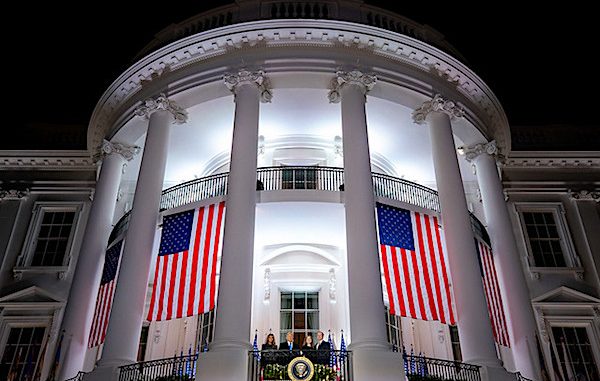
The U.S. Supreme Court on Monday declined to review election lawsuits by Pennsylvania Republicans challenging the state’s extension of the deadline for mail-in ballots.
Three justices dissented — Clarence Thomas, Samuel Alito and Neil Gorsuch — with Thomas warning of “catastrophic” consequences if the court doesn’t address the issue of authorities “changing the rules in the middle of the game.”
Alito, joining with Gorsuch in dissent, pointed out that lower courts are divided on the issue.
“In the cases now before us, a statute enacted by the Pennsylvania Legislature unequivocally requires that mailed ballots be received by 8 p.m. on election day. … Nevertheless, the Pennsylvania Supreme Court … altered that deadline and ordered that mailed ballots be counted if received up to three days after the election,” he said.
Thomas, in a separate opinion, noted that the Constitution gives each state legislature the authority to determine the “manner” of federal elections.
“Yet both before and after the 2020 election, nonlegislative officials in various States took it upon themselves to set the rules instead,” he wrote.
“This is not a prescription for confidence. Changing the rules in the middle of the game is bad enough. Such rule changes by officials who may lack authority to do so is even worse. When those changes alter election results, they can severely damage the electoral system on which our self-governance so heavily depends. If state officials have the authority they have claimed, we need to make it clear. If not, we need to put an end to this practice now before the consequences become catastrophic,” he said.
Thomas said it may seem reasonable to address the issue when it next arises, because the 2020 election is now over.
“But whatever force that argument has in other contexts, it fails in the context of elections. For at least three reasons, the Judiciary is ill equipped to address problems—including those caused by improper rule changes—through post-election litigation,” he said.
He explained there are time frames following elections that make judicial review impossible. Second, he said, the issue at hand, mail-in ballots, is “substantially more complicated” that other cases. And, he said, the risk of fraud is “vastly more prevalent” for mail-in ballots.
The court’s refusal to take the cases means several remaining 2020 election challenges raised on behalf of former President Trump will be dropped.
Thomas said the Pennsylvania cases “provide us with an ideal opportunity to address just what authority non-legislative officials have to set election rules, and to do so well before the next election cycle.”
“The refusal to do so is inexplicable.”
Alito said the Pennsylvania cases “present an important and recurring constitutional question: whether the Elections or Electors Clauses of the United States Constitution are violated when a state court holds that a state constitutional provision overrides a state statute governing the manner in which a federal election is to be conducted.”
“That question has divided the lower courts, and our review at this time would be greatly beneficial.”
Thomas noted that state officials refused to follow their own laws.
“The Constitution gives to each state legislature authority to determine the ‘Manner’ of federal elections. … Yet both before and after the 2020 election, nonlegislative officials in various states took it upon themselves to set the rules instead. As a result, we received an unusually high number of petitions and emergency applications contesting those changes. The petitions here present a clear example. The Pennsylvania Legislature established an unambiguous deadline for receiving mail-in ballots: 8 p.m. on election day. Dissatisfied, the Pennsylvania Supreme Court extended that deadline by three days. The court also ordered officials to count ballots received by the new deadline even if there was no evidence—such as a postmark—that the ballots were mailed by election day. That decision to rewrite the rules seems to have affected too few ballots to change the outcome of any federal election. But that may not be the case in the future.”
He pointed out that “parties on both sides” said the issue should be reviewed, “but there also was no question that petitioners faced irreparable harm.”
Thomas said there was strong evidence that Pennsylvania courts violated the U.S. Constitution by rejecting the “clearly expressed intent of the legislature.”
Alito argued that there is a reasonable expectation that the parties will face the same questions in the future.
Via Wnd
